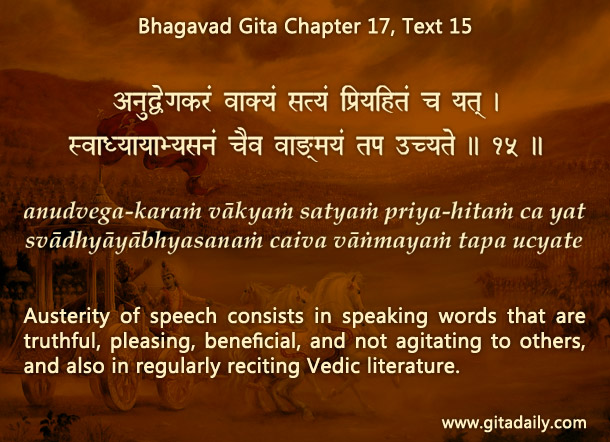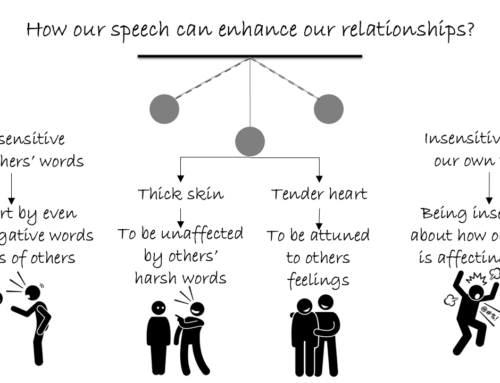Suppose a doctor is treating a patient for a painful ailment wherein a boil needs to be cut. If the doctor is sensitive, they are aware of how the cutting is likely to cause pain to the patient and they will try to minimize the pain. If, however, the doctor is sentimental, they may so fear causing any pain to the patient that they refuse to administer the necessary treatment.
Thus, to be sensitive is to have an emotion sensor; those who lack sensitivity remain oblivious to how their actions are hurting others and thus end up causing unnecessary distress. In contrast, to be sentimental is to let the emotion sensor become an emotion censor; emotions are no longer just a factor in decision-making – they become the sole basis of decision-making.
Pertinently, the Bhagavad-gita (17.15) urges us to be sensitive when it recommends that our speech be non-agitating and pleasing. And it urges us to not be sentimental when it recommends that our speech should also be truthful and beneficial. If we give in to sentimentality, we will not speak what is truthful and beneficial out of fear that it may anger or alienate others. If, on the other hand, we lack sensitivity, we won’t care at all that our words are hurting our audience – such apathy is unproductive or even counterproductive because the purpose of speaking the truth is to inspire seeking for the truth.
Sensitivity treads the fine balance between apathy and sentimentality; by enabling us to be aware of the emotional impact of our words on others, it enables us to make an informed decision whether the truth we are speaking is so essential and beneficial as to be worth disturbing them.
One-sentence summary:
Sensitivity is the ability to be aware of how our actions are impacting others emotionally, whereas sentimentality is the tendency to let our actions be determined by emotions.
Think it over:
- With a medical metaphor, explain the difference between sensitivity and sentimentality?
- How does the Gita recommend sensitivity, not sentimentality?
- How can you cultivate sensitivity and avoid sentimentality?
***
17.15: Austerity of speech consists in speaking words that are truthful, pleasing, beneficial, and not agitating to others, and also in regularly reciting Vedic literature.
To know more about this verse, please click on the image




Leave A Comment